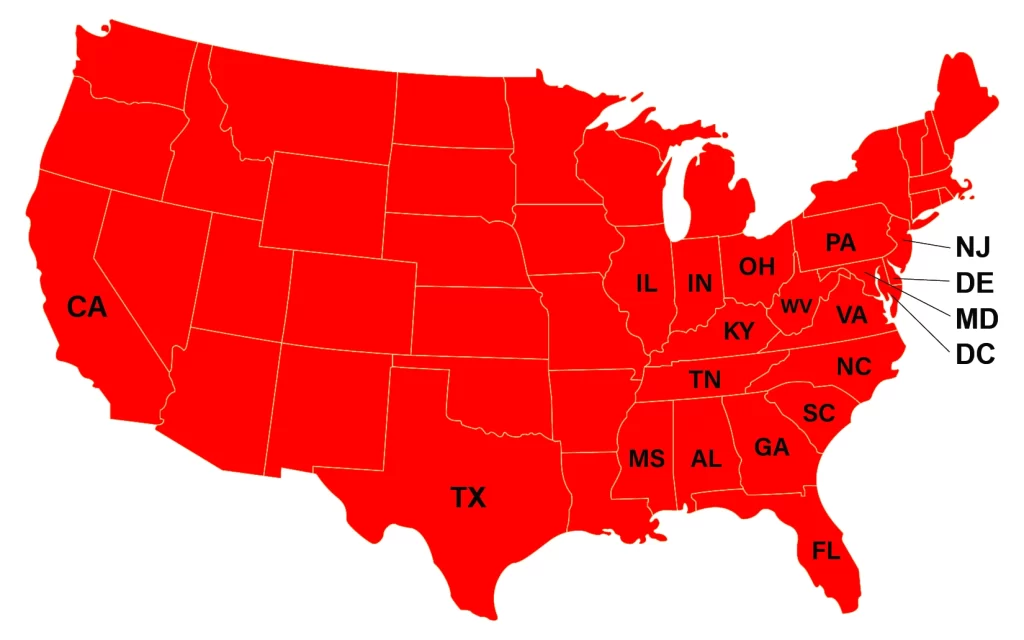In today’s interconnected business landscape, organizations increasingly rely on third-party vendors to enhance operational efficiency and drive growth. However, these partnerships can introduce significant risks if vendors fail to meet compliance standards or lack integrity. Implementing robust vendor verification processes through corporate investigations is essential to mitigate these risks and ensure trustworthy collaborations.
Understanding Vendor Verification
Vendor verification involves systematically assessing and validating a vendor’s qualifications, credentials, and adherence to regulatory and ethical standards. This process aims to confirm that potential partners are reliable, financially stable, and compliant with relevant laws and industry regulations. Effective vendor verification safeguards an organization’s reputation, ensures operational continuity, and maintains compliance with legal and ethical standards.
The Importance of Corporate Investigations in Vendor Verification
Corporate investigations play a pivotal role in the vendor verification process by providing a thorough examination of potential vendors. These investigations delve into various aspects, including:
- Financial Stability: Evaluating financial health to ensure the vendor can fulfill contractual obligations without risk of insolvency.
- Legal Compliance: Verifying adherence to laws and regulations to prevent legal liabilities.
- Reputation and Integrity: Assessing the vendor’s market reputation and ethical standing to ensure alignment with the organization’s values.
- Operational Capability: Confirming the vendor’s ability to deliver required goods or services efficiently and effectively.
By conducting comprehensive corporate investigations, organizations can identify potential red flags and make informed decisions about engaging with vendors.

Key Components of Vendor Verification
- Due Diligence: This involves gathering and analyzing information about a vendor’s background, financial status, legal history, and operational practices. Due diligence helps in identifying any past misconduct, financial instability, or legal issues that could pose risks.
- Compliance Checks: Ensuring that the vendor complies with industry-specific regulations, international laws, and internal company policies. This includes verifying licenses, certifications, and adherence to standards such as data protection laws.
- Risk Assessment: Evaluating potential risks associated with engaging the vendor, including financial, operational, reputational, and compliance risks. This assessment helps in determining the level of scrutiny required for each vendor.
- Ongoing Monitoring: Continuously monitoring the vendor’s performance and compliance status throughout the business relationship to detect and address any emerging risks or issues promptly.
Steps in Conducting Vendor Verification
- Establish Clear Policies and Criteria: Define the standards and requirements vendors must meet, including compliance with legal regulations, ethical standards, and alignment with company values.

- Collect Comprehensive Information: Gather detailed information about the vendor, including financial records, legal documents, references, and any relevant certifications.
- Perform Background Checks: Conduct thorough background checks to uncover any past legal issues, financial problems, or reputational concerns that may impact the partnership.
- Assess Compliance and Risk: Evaluate the vendor’s compliance with relevant laws and regulations and assess potential risks associated with the partnership.
- Make Informed Decisions: Based on the gathered information and assessments, decide whether to engage with the vendor, require remediation measures, or reject the partnership.
- Implement Contracts with Compliance Clauses: Ensure that contracts include clauses that require the vendor to maintain compliance and outline consequences for violations.
- Monitor and Review Regularly: Continuously monitor the vendor’s performance and compliance status, conducting periodic reviews to ensure ongoing adherence to standards.

Challenges in Vendor Verification
While vendor verification is crucial, organizations may face challenges such as:
- Resource Constraints: Conducting thorough investigations requires time and resources that some organizations may lack.
- Complex Global Supply Chains: Verifying vendors across different countries with varying regulations can be complex.
- Evolving Compliance Standards: Keeping up with changing laws and regulations requires continuous effort.
To address these challenges, organizations can leverage specialized investigative services and technological solutions to streamline the verification process.
Best Practices for Effective Vendor Verification
- Adopt a Risk-Based Approach: Prioritize verification efforts based on the risk level associated with each vendor, focusing more resources on high-risk partnerships.
- Utilize Technology: Implement advanced tools and software to automate data collection, analysis, and monitoring processes, enhancing efficiency and accuracy.
- Engage Third-Party Experts: Consider partnering with specialized firms that offer vendor verification and corporate investigation services to ensure thorough assessments.
- Maintain Clear Communication: Establish open lines of communication with vendors to facilitate transparency and address compliance concerns promptly.
- Document and Report Findings: Keep detailed records of all verification activities, findings, and decisions to ensure accountability and facilitate audits.
Case Study: The Consequences of Inadequate Vendor Verification
A notable example highlighting the importance of vendor verification is the case of a major footwear corporation in the early 1990s. The company faced severe reputational damage and consumer boycotts after it was revealed that its suppliers were engaging in unethical labor practices, including the use of child labor. This incident underscores the critical need for thorough vendor verification to ensure compliance with ethical standards and to protect a company’s reputation.
The Role of Corporate Integrity Agreements (CIAs)
In certain industries, particularly healthcare, organizations may enter into Corporate Integrity Agreements (CIAs) with government agencies as part of civil settlements. These agreements outline the obligations a company must fulfill to ensure compliance and ethical operations. While CIAs are more common in healthcare, the principles they embody can be applied broadly to reinforce the importance of integrity in vendor relationships.
Vendor verification through corporate investigations is a vital process for organizations seeking to establish trustworthy and compliant partnerships. By implementing comprehensive verification procedures, businesses can mitigate risks, ensure compliance, and build strong, reliable vendor relationships that contribute to long-term success.
Secure Your Business with Expert Investigations
At J.P. Investigative Group, our private investigator Charlotte, NC excels at conducting undercover investigations, recorded statements and interviews, witness location, subrogation investigations, larceny, embezzlement, and theft investigations. Our unit often collaborates with law enforcement agencies to uncover facts and provide support for corporate and civil investigations. As a leading private investigation firm Charlotte, we ensure your partnerships are built on integrity and compliance. For reliable services, trust our private detective Charlotte team. We also specialize in private investigation Charlotte, private investigator Charlotte NC, and Investigator Charlotte NC.
Call now to safeguard your business!


